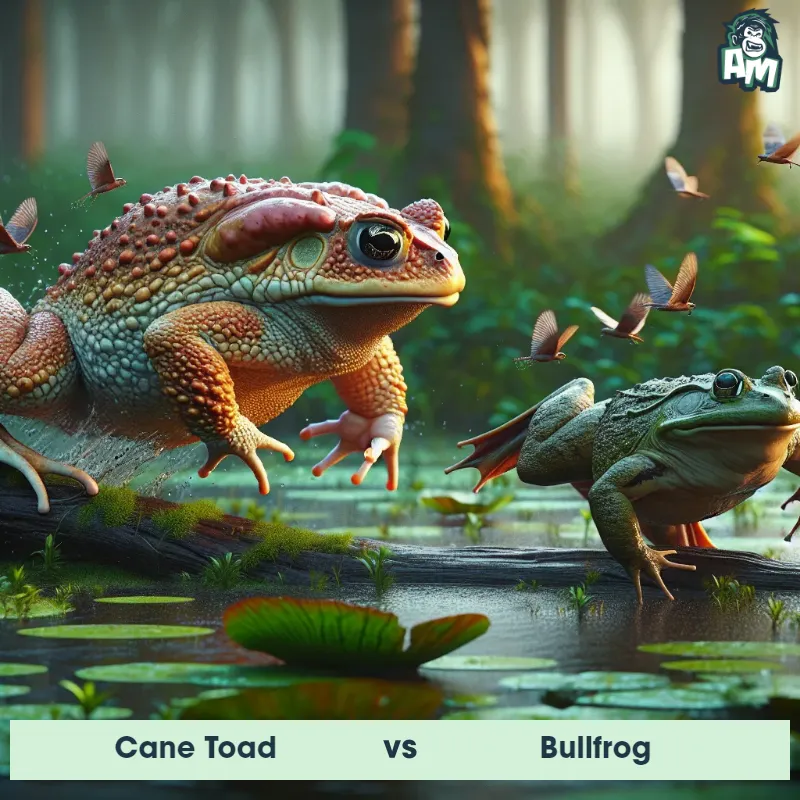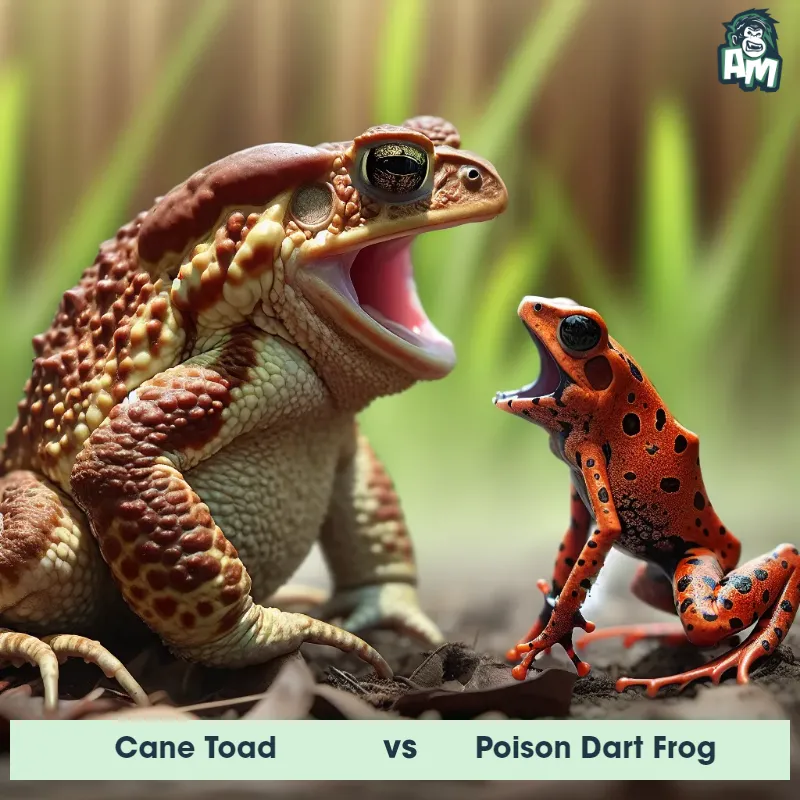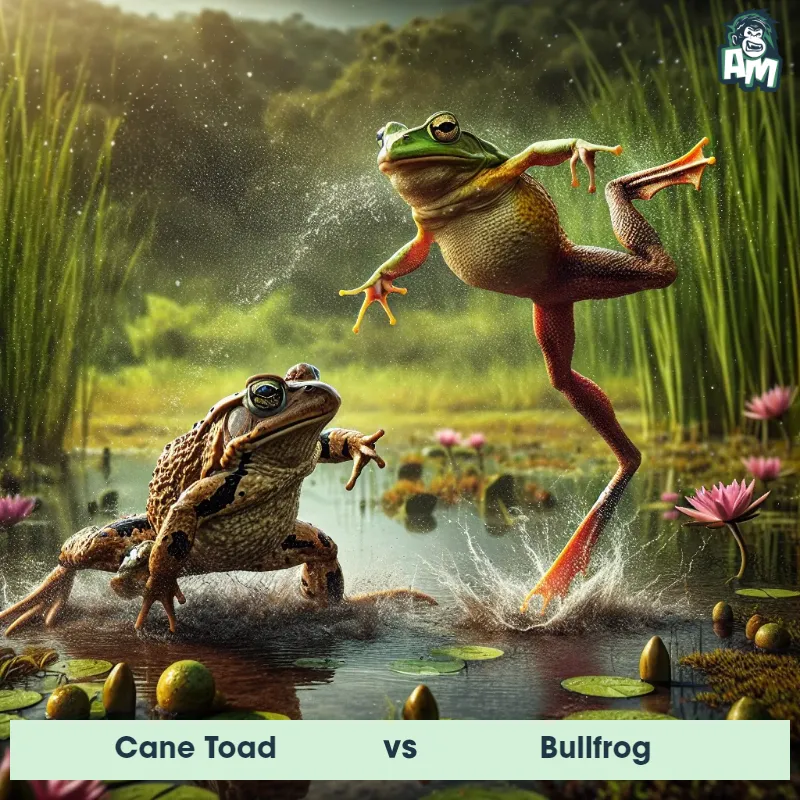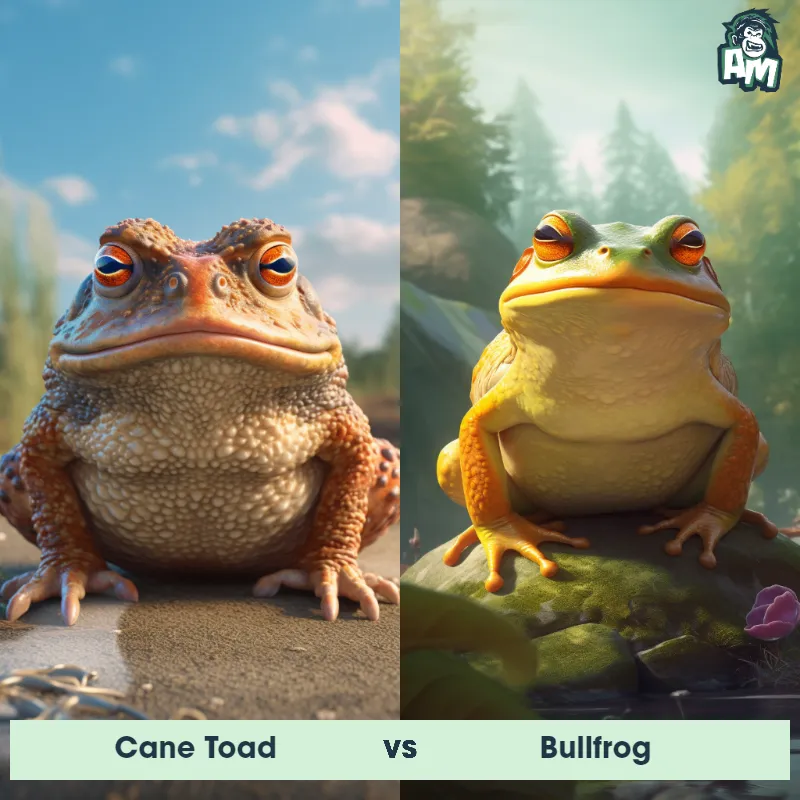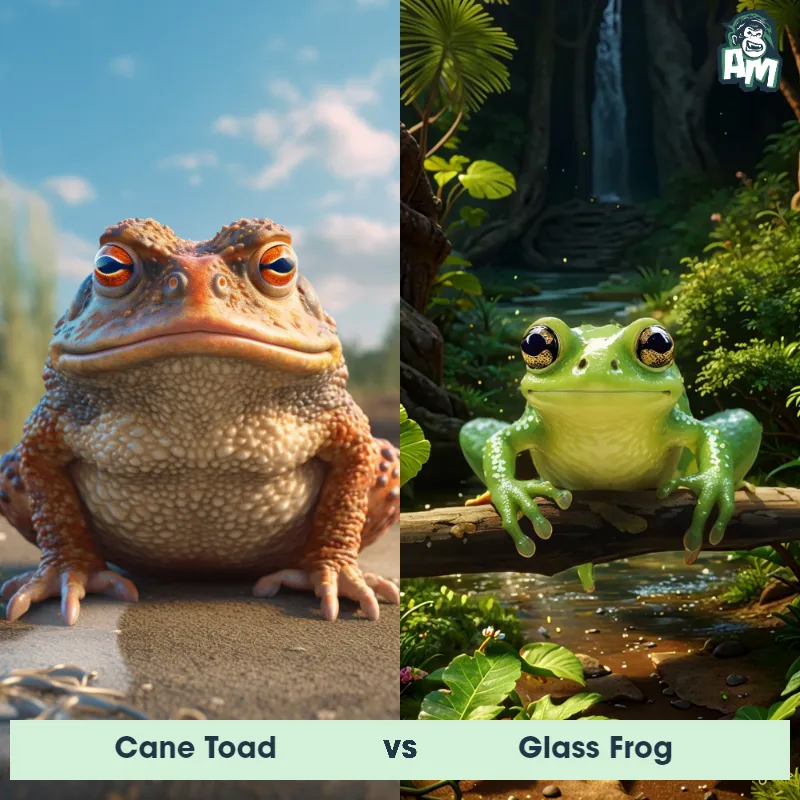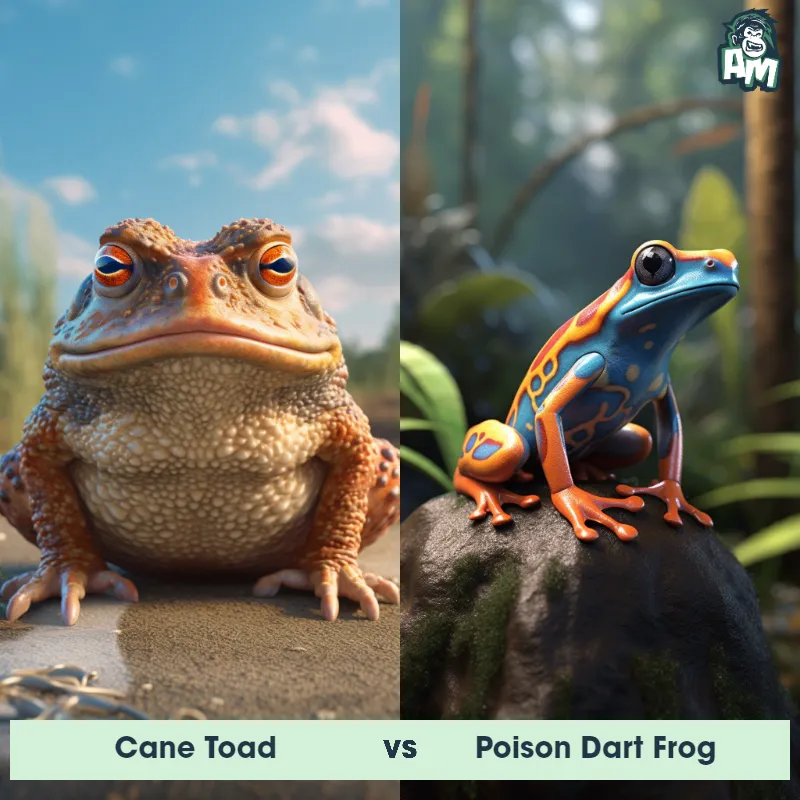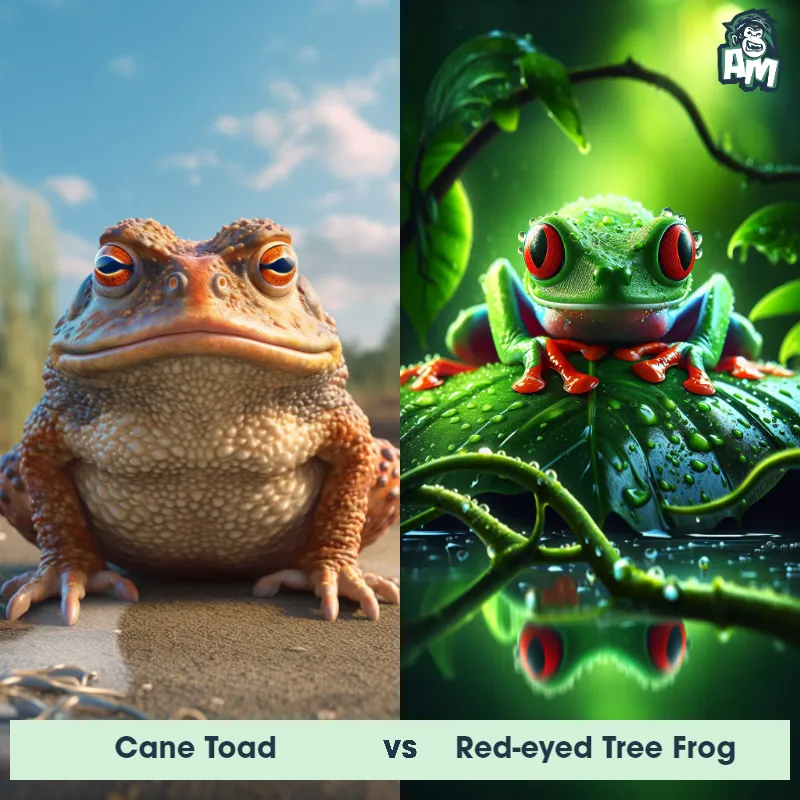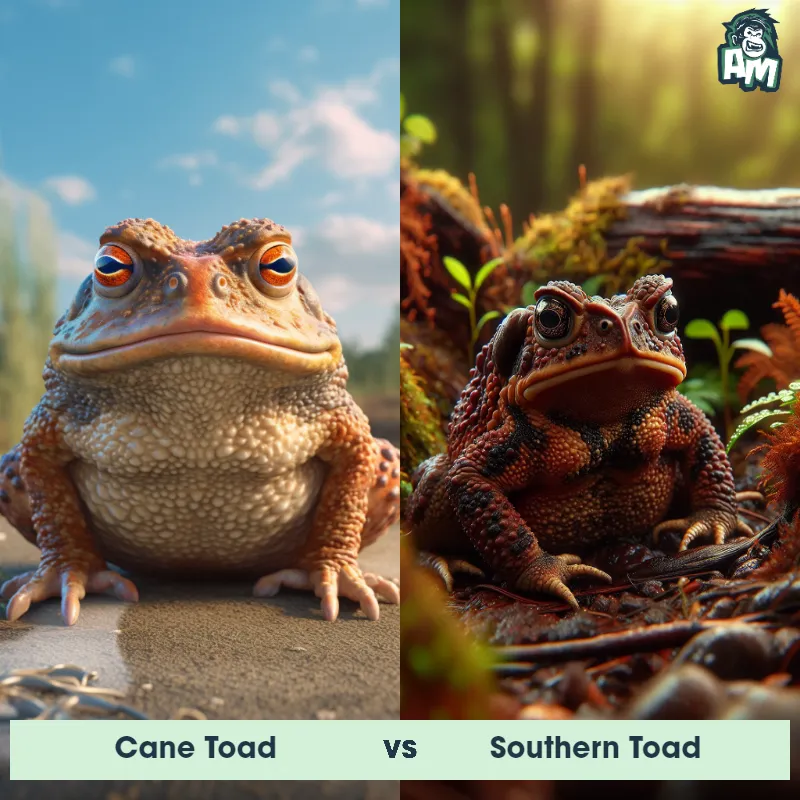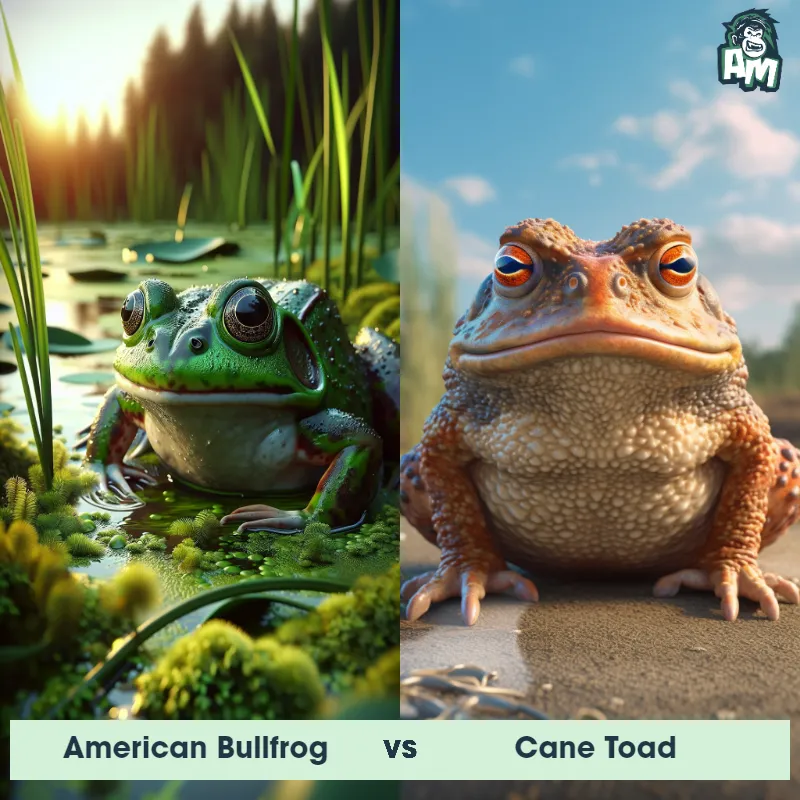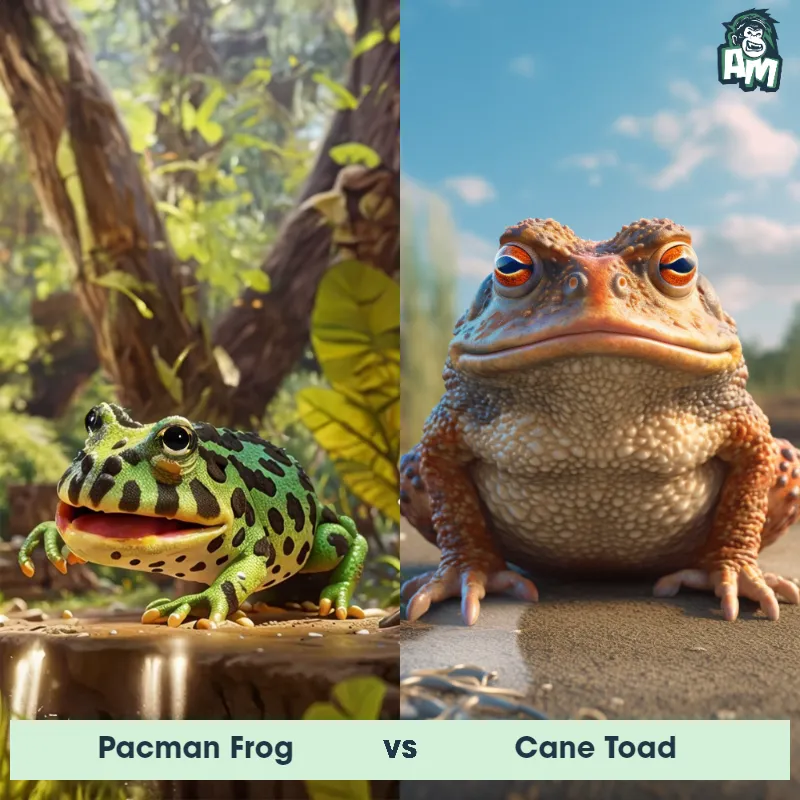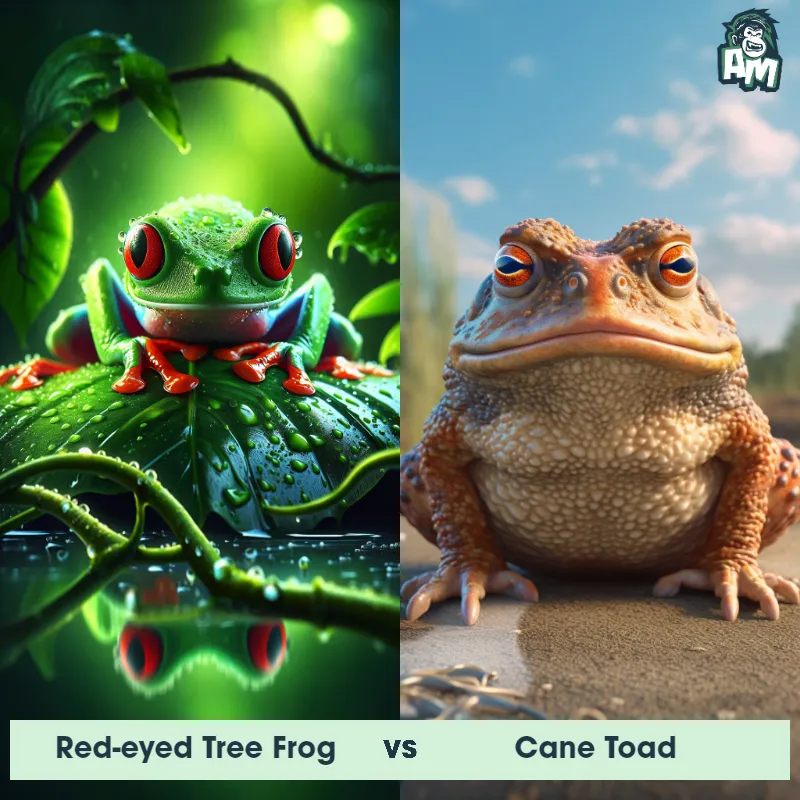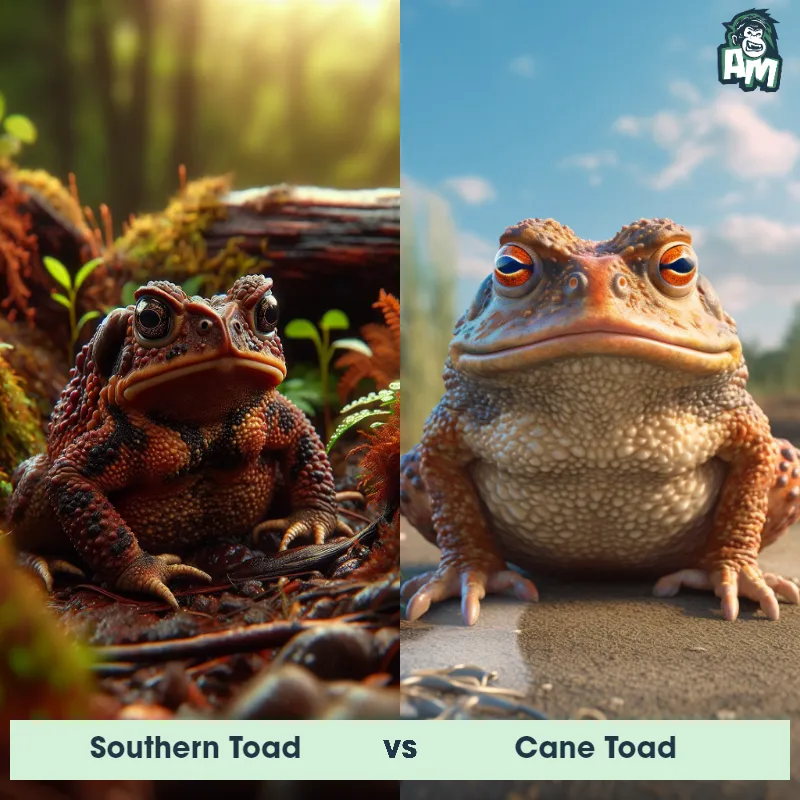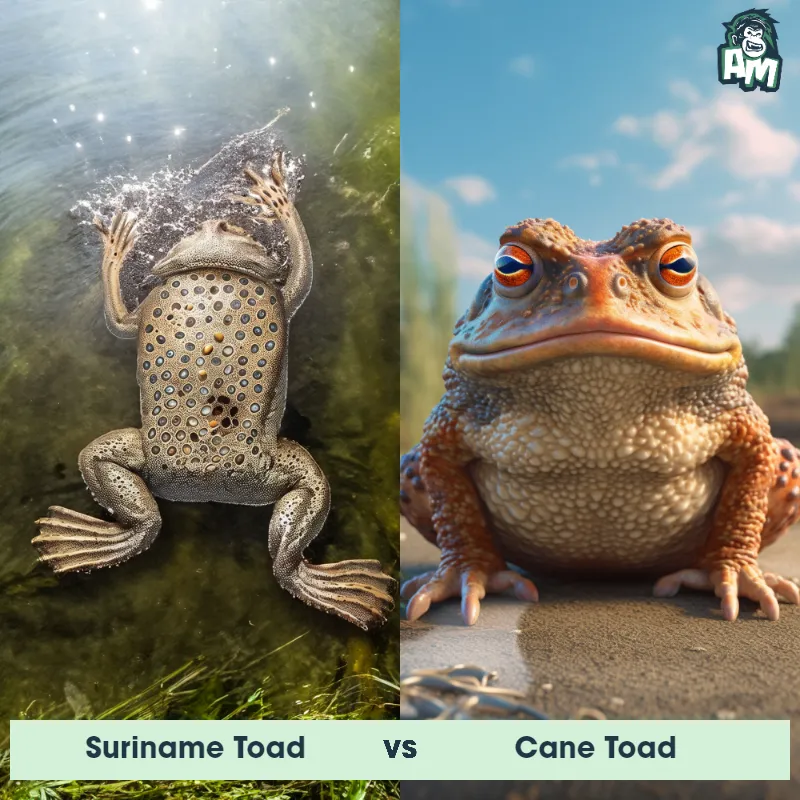The Cane Toad
The Cane Toad, also known as the Bufo marinus, is a large and invasive species of toad native to South and Central America. They have a distinct oval-shaped body with rough, warty skin that can vary in color from brown to gray or olive-green. Cane Toads have powerful hind legs for hopping and can grow up to 6 inches in length. One notable feature is their poison glands located behind the eyes, which secrete toxic substances called bufotoxins as a defense mechanism against predators.
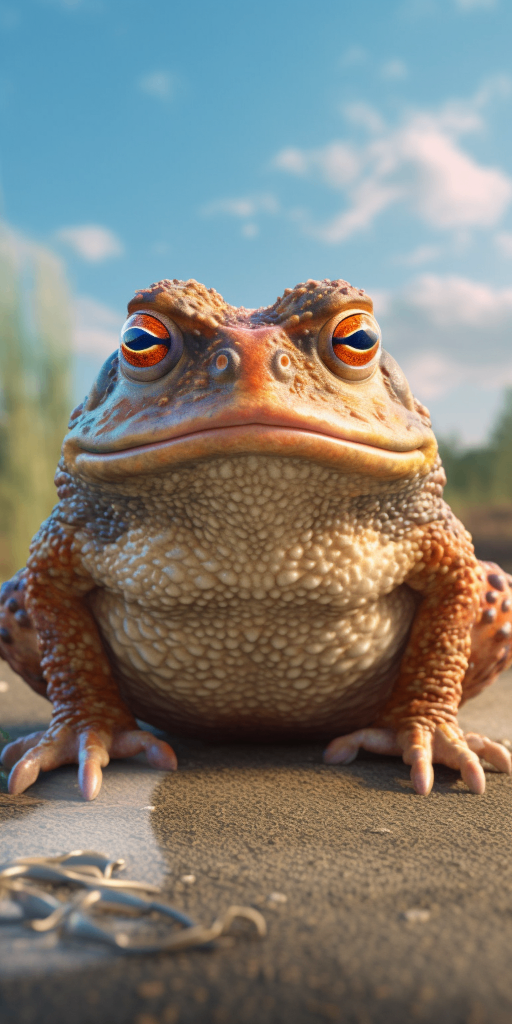
| Cane Toad | |
|---|---|
| Size | Up to 9 inches (22.86 cm) |
| Weight | Up to 4 pounds (1.81 kg) |
| Speed | Speed: 5 mph (8 km/hr) |
| Key Strength | Parotoid glands secrete toxic substance |
| Biggest Weakness | Slow movement |
| Scientific Name | Bufo marinus |
| Family | Bufonidae |
| Habitat | Terrestrial |
| Geography | Native to Central and South America, introduced to other parts of the world |
| Diet | Insects, small animals, plants |
| Lifespan | 5 years - 10 years |

The Cane Toad
The Cane Toad, also known as the Bufo marinus, is a large and invasive species of toad native to South and Central America. They have a distinct oval-shaped body with rough, warty skin that can vary in color from brown to gray or olive-green. Cane Toads have powerful hind legs for hopping and can grow up to 6 inches in length. One notable feature is their poison glands located behind the eyes, which secrete toxic substances called bufotoxins as a defense mechanism against predators.
Fun Fact: Despite their poisonous nature, Cane Toads were introduced to regions like Australia to control pests in sugarcane fields, but they ended up becoming an invasive species with detrimental effects on the ecosystem.
| Cane Toad | |
|---|---|
| Size | Up to 9 inches (22.86 cm) |
| Weight | Up to 4 pounds (1.81 kg) |
| Speed | Speed: 5 mph (8 km/hr) |
| Key Strength | Parotoid glands secrete toxic substance |
| Biggest Weakness | Slow movement |
| Scientific Name | Bufo marinus |
| Family | Bufonidae |
| Habitat | Terrestrial |
| Geography | Native to Central and South America, introduced to other parts of the world |
| Diet | Insects, small animals, plants |
| Lifespan | 5 years - 10 years |
Match Highlights
Cane Toad Matchups
We use AI to simulate matchups between the Cane Toad and other animals. Our simulation considers size, strength, and natural predatory behaviors to determine the most likely outcome.

Can't find the Matchup you want?
Create Your Own MatchupCane Toad: Diet, Predators, Aggression, and Defensive Behaviors
What do Cane Toads eat?
Cane Toads are opportunistic feeders and will consume a wide variety of prey items. They primarily feed on insects, such as beetles, caterpillars, and other invertebrates. They are also known to eat small mammals, reptiles, and amphibians, as well as plants and even garbage.
Do Cane Toads have any predators?
Cane Toads have few natural predators in the regions where they have been introduced. Native Australian animals, such as certain snake species and some birds, have been known to prey on Cane Toads. However, their toxic skin secretions often deter many predators from consuming them.
Are Cane Toads aggressive?
Cane Toads are not typically aggressive towards humans or other animals unless threatened or cornered. They are known for their toxic skin secretions, which they release when they feel threatened. This defense mechanism can cause harm or even death to potential predators.
Do Cane Toads fight?
Cane Toads are not known to actively engage in physical fights with each other or other animals. They rely on their toxic skin secretions and defensive behaviors to avoid confrontation. However, male Cane Toads may compete for mates during the breeding season by vocalizing and displaying dominance.
How do Cane Toads defend themselves?
Cane Toads defend themselves primarily through their toxic skin secretions. When threatened, they excrete a milky-white toxin from special glands located on their skin. This toxin can cause irritation, vomiting, and even death in predators who attempt to consume them. They may also inflate their bodies to appear larger and more intimidating.
What is Cane Toads' biggest weakness in a fight?
Cane Toads' biggest weakness in a fight is their slow movement and lack of agility. While their toxic skin secretions can deter predators, they are not particularly adept at evading physical attacks. Their inability to quickly escape danger makes them vulnerable in confrontations with faster and more agile predators.
Fun Fact: Cane Toads have a unique reproductive behavior; the females lay long, gelatinous strands of eggs in freshwater bodies, which can contain up to 30,000 eggs each, ensuring a high survival rate for their offspring.
Fun Fact: The Cane Toad is not a picky eater and has a voracious appetite. They consume a variety of invertebrates, small vertebrates, and even pet food. However, their indiscriminate feeding habits also lead to negative impacts on native species, as they can outcompete and prey upon local amphibians and reptiles.



